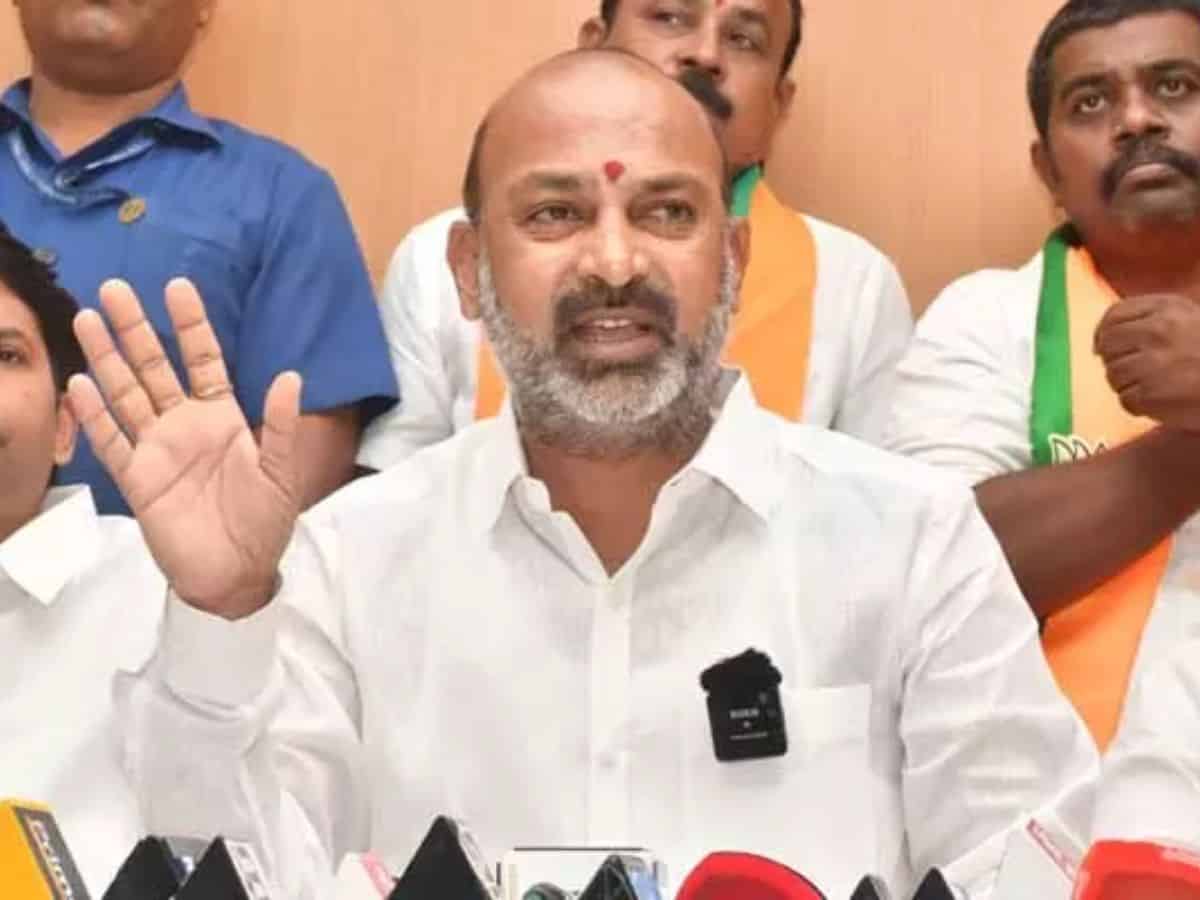
Hyderabad: Union Home Ministry’s Minister of State (MoS), Bandi Sanjay Kumar, has alleged that the Revanth Reddy-led government is providing financial assistance to the AIMIM for organising a public meeting in Hyderabad opposing the Waqf Board Amendment Bill.
Speaking at a press conference at the BJP state office on Friday, April 18, Sanjay accused the AIMIM of conspiring to create disturbances under the guise of protests and meetings.
Telangana could face situation similar to Bengal: Sanjay
He warned that if such unrest continues, Telangana could face a situation similar to West Bengal. Sanjay held Revanth Reddy responsible for any such developments.
Sanjay stated that the AIMIM’s protests are essentially Congress-sponsored activities.
He demanded a thorough investigation by the Telangana High Court into Revanth Reddy’s involvement in Waqf properties and called for a white paper on the issue.
BJP has no connection with National Herald case: Sanjay
He clarified that the BJP has no connection with the National Herald case, noting the newspaper was shut down in 2008 after incurring losses of Rs 90 crore, and accused Sonia Gandhi, Rahul Gandhi, and others of attempting to acquire assets worth Rs 2000 crore related to the case.
Sanjay pointed out that Rahul and Sonia are accused on bail in this matter.
He criticised Congress leaders for their disrespectful remarks against Prime Minister Narendra Modi and Union minister Kishan Reddy, questioning the justification of such behaviour.
Sanjay mentions Rahul Gandhi’s remarks on AIMIM
Sanjay also mentioned Rahul Gandhi’s advice to Congress leaders to distance themselves from the AIMIM party, but clarified that this does not mean abstaining from voting in local body MLC elections; rather, they should vote against the AIMIM.
The Waqf Board Amendment Bill, recently approved by the Modi Cabinet, aims to bring transparency, technical management, and accountability to Waqf properties, which include religious endowments such as mosques, dargahs, and madrasas.
The bill mandates the registration of Waqf properties with district collectors, includes women and non-Muslim members in Waqf Boards, and removes certain unilateral powers previously held by Waqf Boards.

